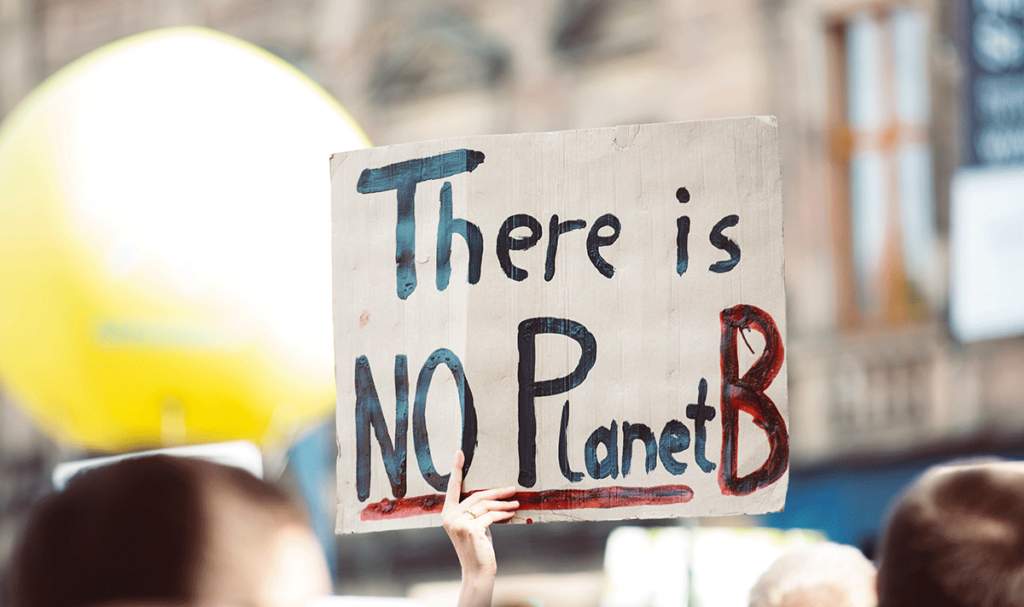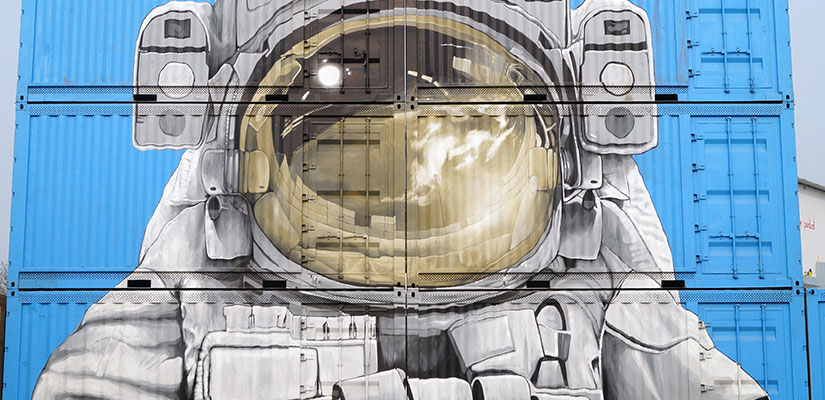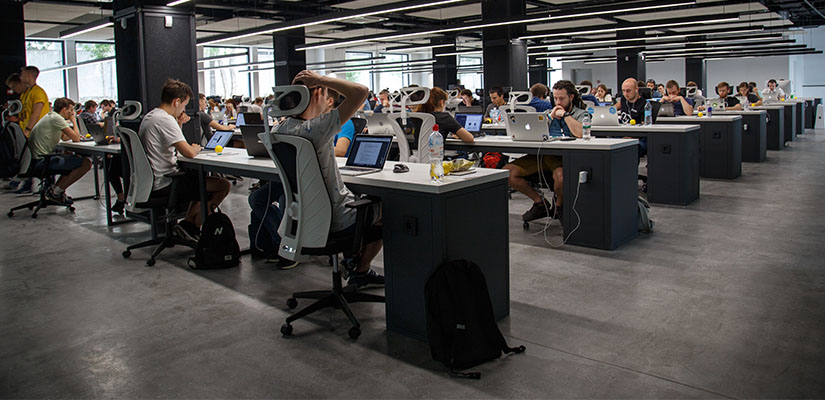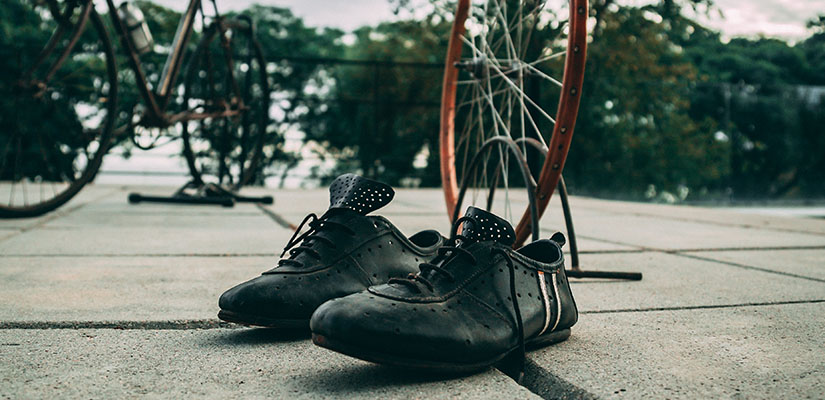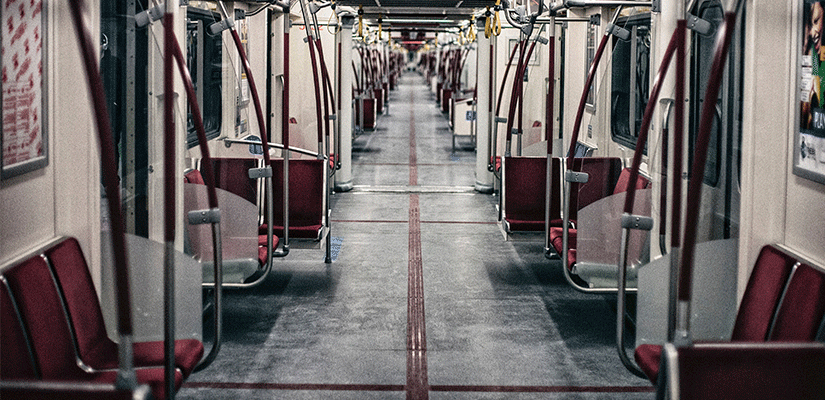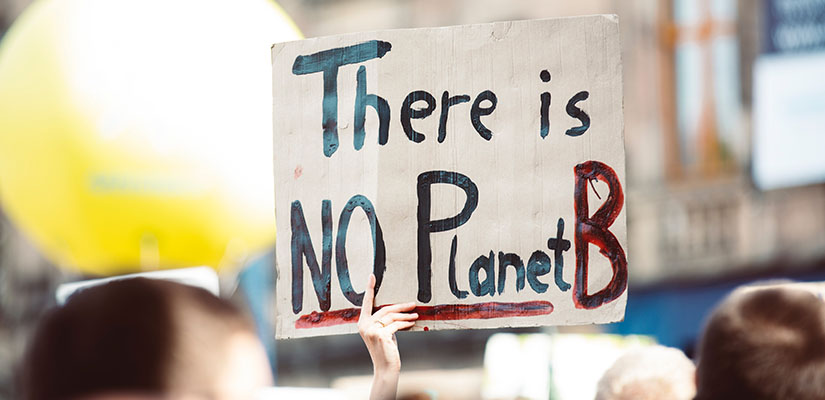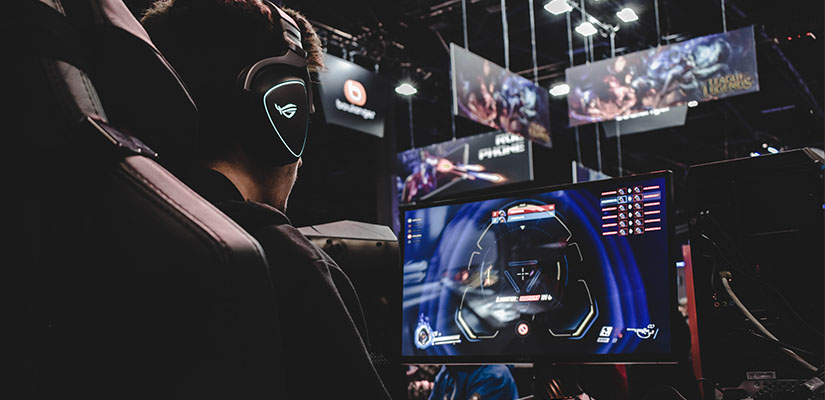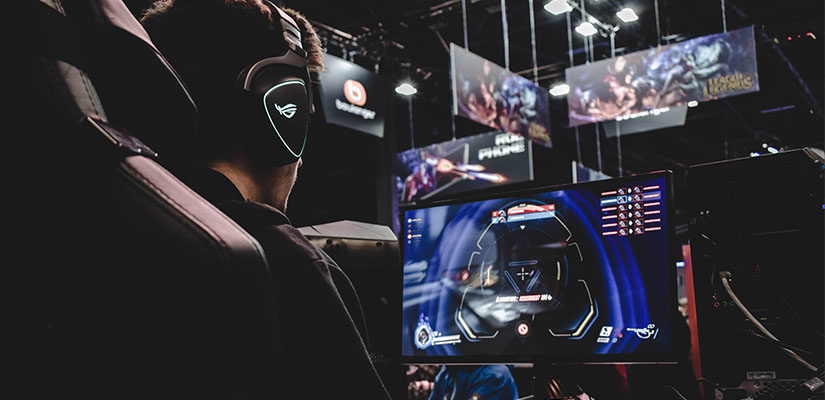
Persona 4: Dan Yoon
Government is proactive + profit before purpose
Microwork economies and winner-take-all profit motives are contentious. Concerns about climate change are paramount. And suddenly, mega-corps are aligned with environmental causes.
Note: Corporate cooperativism is a concept that developed out of the first workshop. It does not to our knowledge exist as a popular term. However, platform cooperativism is a movement that offers new models for microwork. Trebor Scholz’s work, Platform Cooperativism: Challenging the Corporate Sharing Economy, is a valuable resource. Also of note is the Platform Cooperative Consortium. In this scenario, profit before purpose has fostered multi-national, rather than worker involvement in cooperativism.
Scenario 4 was developed at the microworking session held on December 10, 2019. The related narrative, Corporate Cooperativism describes Toronto in 2030.
Dan was always good with computers
However, when they assigned him his job, they didn’t realize this was not a computer thing. It was a people thing. Although Dan Yoon liked people, he was an introvert. But because the money was better and the work was interesting, he couldn’t say no to a promotion. Also, he was good at his job.
Although Dan was doing work that was a lot like what he did with computers. It was sort of like coordinating many servers in the cloud, although they sometimes de-synced. He was managing real people working on microwork tasks.
The output was about managing two sets of risks
The first one was rational, due to the fluctuating microwork market prices. If they had a flex-contract, people could start working and then switch to somewhere else. Of course, only after the first guaranteed contract deliverable. This type of contract was usually cheaper for the company.
The second risk category was less predictable because it addresses random work stoppages. Work could stop due to a heatwave, flood, or wage strike.
Dan wanted to do well enough to keep his job, which meant controlling the flow of tasks. Although he also wanted to minimize bad effects on people.
In some sense, Dan’s work was like that of an investor, who monitored several “portfolios” in real-time. Except they were pods of real people, working on small tasks. If work stoppages occurred, or work of similar quality could be obtained for less, Dan had to switch, quickly and efficiently, to some other provider. He sometimes struggled, due to complicating factors. This depended on the type of contract and its compliance with the latest policy developments. But he was able to make it work.
Dan always imagined himself making it big in e-sports. When he visited home and hung out with his cousins, e-sports were a pastime. Although this work was almost as good. Because it required agility, thinking, quick responses, communication, and making the right calls. Just like e-sports, a wrong decision could be detrimental. It might not get your team killed on the digital battlefield, but the wrong microwork deal could lose money. Because clients could become unhappy. If this happened, the company would first lose money, and then their reputation. Competition these days is fierce. So that was unacceptable.
If a microwork rating fell below the fabled “double-A”, it could spell disaster. Because a company could cancel their competitive deals. At their size, that would mean the end.
Unlike most of their competition, large mega-corps with billions in their pockets aren’t backing them. They were small in comparison and trying to be the good guys.
Contributors
This scenario was written by Goran Matic. It was developed at the Microwork Drivers Workshop on December 10, 2019. It’s based on the contributions of the following people. With thanks.
Gina Lihou, Youth Employment Advisor and Facilitator, St. Stephen’s Community House
Han Phu, International Business Development
Julyata Mekonnen, Community Access Coordinator, The Neighbourhood Group
Nisa Malli, Senior Policy Analyst, Brookfield Institute for Innovation + Entrepreneurship
Tinashe Mafukidze, Executive Director, Toronto Workforce Innovation Group
Valeria Gallo Montero, UofT undergraduate student
Microtasking posters
Are you planning to hold a discussion on microwork? The posters make great prompts for your group.
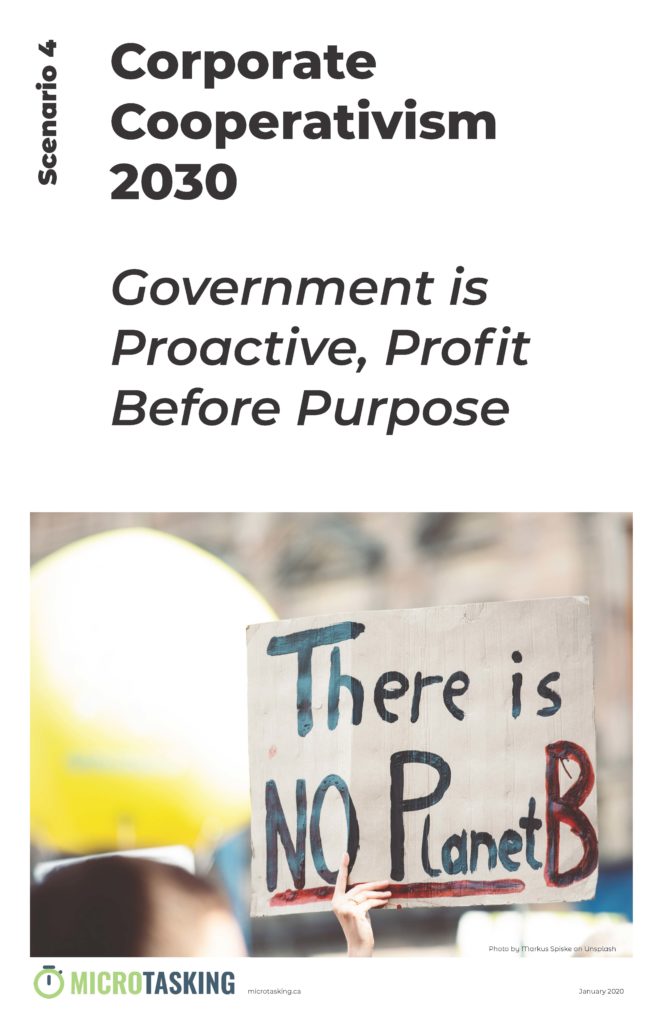
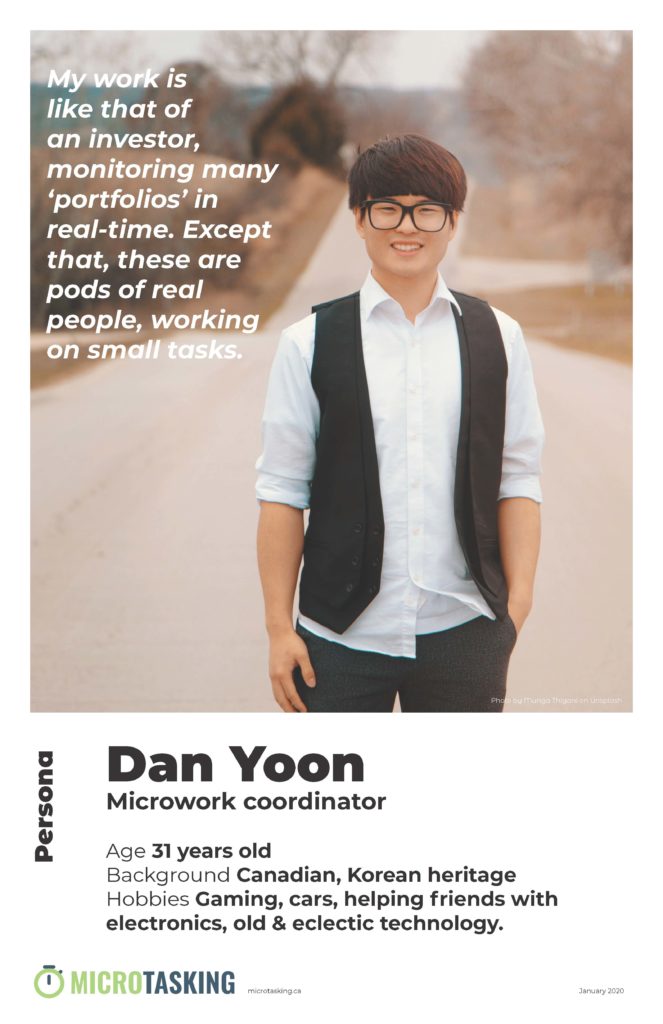
You can download the full set of eight posters from the project toolkit.
Photo used to represent Dan by Munga Thigani on Unsplash
Overwatch Sport Competition photo by Florian Olivo on Unsplash.
All scenarios
TORONTO 2030: TALES OF POLICY AND PROFIT
Persona 1: Robin Esposito
Scenario 2: Profitably Public
Persona 2: Alyx Lee
Scenario 3: The Social Impact Franchise
Persona 3: Vasil Ramadani
Scenario 4: Corporate Cooperativism
Persona 4: Dan Yoon
- Scenario 4: Corporate Cooperativism - December 21, 2019
- Persona 4: Dan Yoon - December 21, 2019

